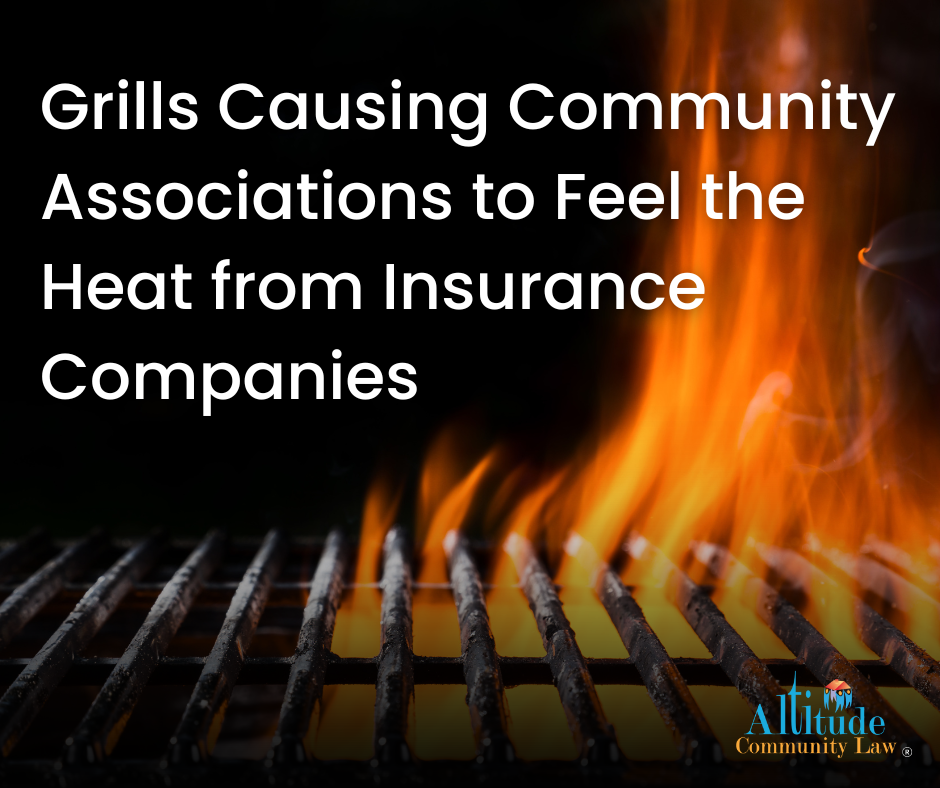
As many common interest community owners and boards likely know, finding association insurance at a reasonable rate in Colorado is becoming more difficult. One of the reasons for this is that Colorado is the state with the third-highest wildfire risk, with Colorado’s 20 largest recorded wildfires occurring in the last 2 decades. In 8 of the last 10 years, Colorado has been listed as a state where homeowners insurance has been unprofitable for the insurance industry. Due to Colorado’s high risk for wildfires and hail damage, this has led many insurance companies to decide to no longer do business in Colorado at all.
Given the above, many of the insurance companies that are still doing business in Colorado are refusing to insure community associations unless the associations adopt a rule that prohibits owners from using grills on their decks or balconies, or within 10 feet of any structure or overhang. The insurance industry estimates that on a national basis, outdoor grills cause about 6,000 fires and $35 million in damage each year. In the past couple of years, our firm has been informed by many of our clients and community managers that their insurance company is requiring such prohibition against outdoor open flame devices or the insurance company will drop our client. We suspect that the number of insurance companies which require a prohibition on exterior open-flame devices will only continue to grow.
Due to this situation, our firm drafts Grill Policies which prohibits owners from using any outdoor open-fire device on such owners’ decks or patios, or otherwise within 10 feet of any building, structure, or other combustible materials, such as trees and brush, in the community. While our clients’ governing documents may expressly allow the usage of such open-flame devices, this right is over-ruled by the association’s duty to obtain insurance and to protect the association from liability. Many of our clients’ declarations specify that an owner is prohibited from doing anything or causing anything to be kept in the community which might result in an increase in the association’s insurance premiums. In sum, the liability risk of a common interest community not being able to obtain required insurance heavily outweighs the damages to owners not able to use an open-fire device in the community.
If your community is struggling to obtain property insurance and does allow owners to use exterior open-flame devices on their decks, patios, or otherwise within 10 feet of any of the association’s structures, it is strongly recommended that the board consider adopting a Grill Policy, which could help your association find an insurance carrier with a more reasonable premium. If your community’s board has already received notification from the insurance company that such prohibition is required for the insurance company to continue insuring your community, our firm can draft a Grill Policy that fulfills the insurance company’s requirements. In either situation, it is likely in your association’s best interests to restrict outdoor open-flame devices so as to mitigate against the potential of a fire and for the association to obtain property insurance.
If you have questions concerning your community’s ability to obtain insurance or would like to discuss the preparation of a Grill Policy, please contact one of our attorneys at 303.432.9999 or [email protected].